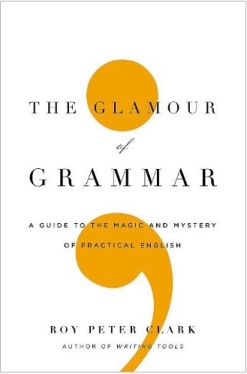- HOME
- INTRO TO THE FORUM
- USE AND MISUSE
- BADLY WRITTEN, BADLY SPOKEN
- GETTING
TO KNOW ENGLISH - PREPARING FOR ENGLISH PROFICIENCY TESTS
- GOING DEEPER INTO ENGLISH
- YOU ASKED ME THIS QUESTION
- EDUCATION AND TEACHING FORUM
- ADVICE AND DISSENT
- MY MEDIA ENGLISH WATCH
- STUDENTS' SOUNDING BOARD
- LANGUAGE HUMOR AT ITS FINEST
- THE LOUNGE
- NOTABLE WORKS BY OUR VERY OWN
- ESSAYS BY JOSE CARILLO
- How Finite Verbs Differ From Non-Finite Verbs
- The Need To Avoid Officious Stock Phrases When Writing Or Speaking
- Sounding Profound By Quoting Someone Without Attribution
- Why We Need to Hyphenate Certain Compound Modifiers
- Let’s Come To Grips With The Proper Use Of“However”Once And For All
- How English Makes Do To Evoke The Sense Of The Past Imperfect
- ABOUT JOSE CARILLO
- READINGS ABOUT LANGUAGE
- TIME OUT FROM ENGLISH GRAMMAR
- NEWS AND COMMENTARY
- BOOKSHOP
- ARCHIVES
READINGS IN LANGUAGE
This new section features links to interesting, instructive, or thought-provoking readings about the English language. The selections could be anywhere from light and humorous to serious and scholarly, and they range widely from the reading, writing, listening, and speaking disciplines to the teaching and learning of English.
“A grammar book that’s very much a manual for the 21st century”
There are strict prescriptivist guides and tolerant descriptivist guides to English grammar, but Roy Peter Clark’s The Glamour of Grammar: A Guide to the Magic and Mystery of Practical English (Little, Brown & Company, 294 pages) is something of an improbable hybrid of the two. The newly released grammar book by Clark, a PhD and author of over a dozen books on writing, bills itself as a “grammar of purpose, a grammar of effect, a grammar of intent,” but frequently offers maverick usage advice like “Learn how expert writers break the rules in run-on sentences,” “Learn seven ways to invent words,” and “Master the uses of nonstandard English.”
In “The Poetry of Prose,” a review of The Glamour of Grammar in the August 20, 2010 issue of The New York Times, Ammon Shea says that Clark spends a good deal of time exhorting his readers to become more intimate and friendly with their language, even dispensing such prosaic advice as “Adopt a favorite letter of the alphabet” and “Consult a thesaurus to remind yourself of words you already know.” And unlike many traditional grammar books, Shea observes, The Glamour of Grammar scolds not students of writing but teachers who harbor unduly restrictive views and “tend to turn their own preferences about grammar and language into useless and unenforceable rules.”

“Clark’s nimble explanations [of English grammar] will help make the abstruse clear to the obtuse,” Shea says. “Also handy are the ‘keepsakes’ at the end of each chapter, in which Clark recapitulates salient points but keeps things colloquial enough to avoid sounding like a textbook.”
Shea says that although Clark has rather harsh words against grammar prescriptivists who insist on “rules that have little influence on the making of meaning,” Clark himself is “not above sharing some of the complaints and foibles of the ‘grammazons,’ as he calls the cantankerous set.” He also finds it odd that Clark considers the Oxford English Dictionary a “schoolmarmish and Victorian work, one with no room for the naughty parts of English,” and considers Clark ill-advised in citing an unreliable online source in his discussion of word origins.
In tone and content, Shea says, Clark’s book is very much a manual for the 21st century. “While The Glamour of Grammar will not replace Fowler or Strunk and White, nor render obsolete more contemporary and comprehensive guides, like Bryan A. Garner’s Modern American Usage, it is a welcome addition to the bookshelf of anyone who cares about language—and is willing to argue about it,” he adds.
Read Ammon Shea’s “The Poetry of Prose in The New York Times now!
ABOUT THE AUTHOR:
Roy Peter Clark is senior scholar at the Poynter Institute and founder of its writing center. He is the author or editor of 14 books on journalism and writing, among them Free to Write: A Journalist Teaches Young Writers, Coaching Writers: Editors and Reporters Working Together Across Media Platforms, and most recently, Writing Tools: 50 Essential Strategies for Every Writer. He graduated from Providence College in Rhode Island with a degree in English and earned a PhD from the State University of New York at Stony Brook. In 1977 Clark was hired by the St. Petersburg Times to become one of America’s first writing coaches. He later worked with the American Society of Newspaper Editors to improve newspaper writing nationwide.
RELATED READING:
In “Slanguage,” an article that appeared in the August 26, 2010 issue of The Sun in the UK, Roger Walshe, head of learning at the British Library, traces the fascinating history of the English language from its beginnings as Anglo-Saxon runes to today’s rap music. “Taboo language and swear words frequently made the journey from the street to polite society, often by way of the stage,” he says.
Read Roger Walshe’s “Slanguage” in The Sun in the UK now!
Click to read comments or post a comment
View the complete list of postings in this section
(requires registration to post)






